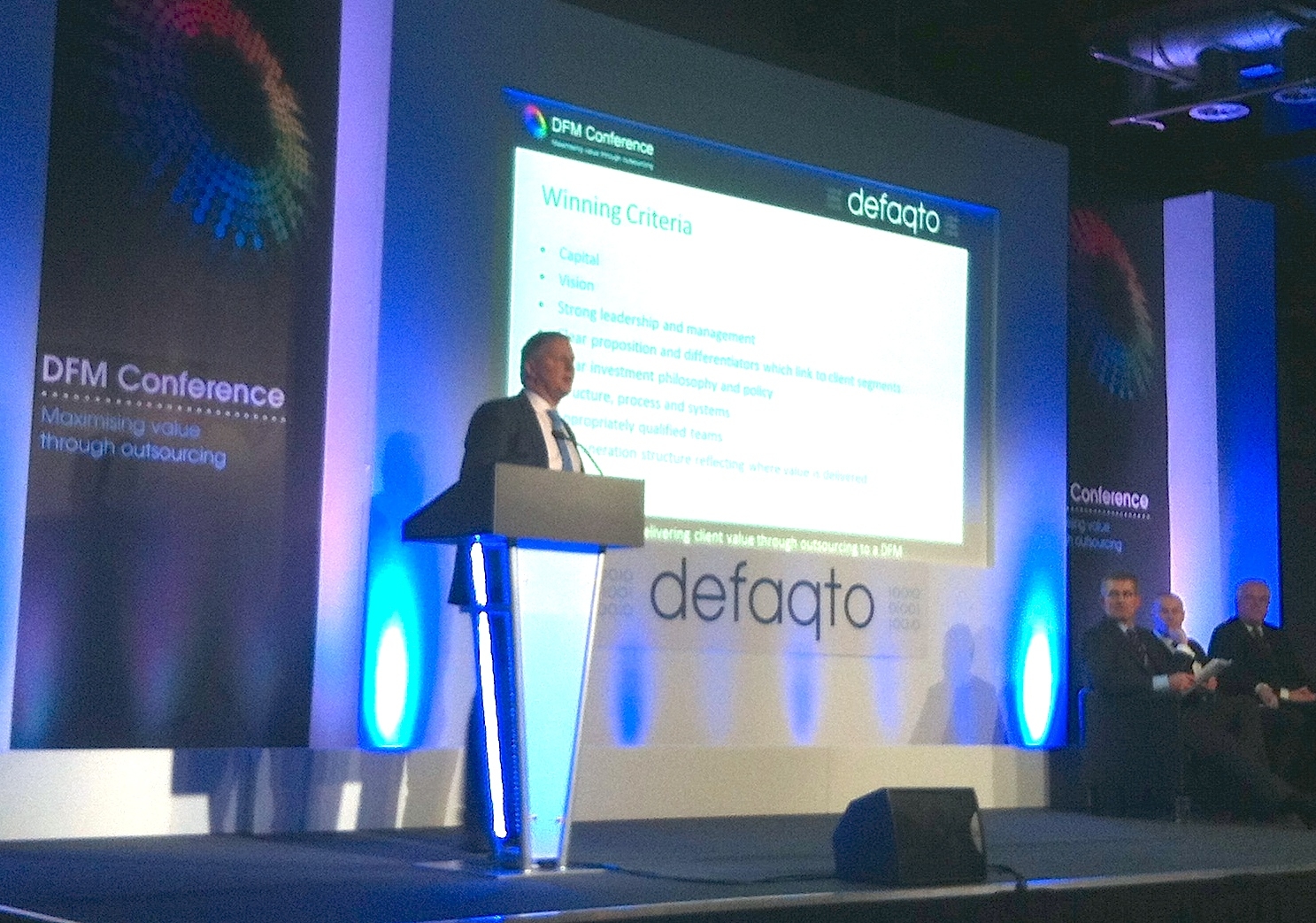Industry experts, including IFP chief executive Nick Cann, debated the challenges facing the rapidly growing DFM sector at a major London conference today.
Four leading experts took part in a panel debate and Q&A session in front of 350+ delegates at the Defaqto DFM Conference in London titled "Delivering client value through outsourcing to a DFM."
The experts mostly concluded that there was potentially great investment value but that advisers had to apply due diligence and not assume that DFMs were the answer to every investment challenge.
Speaking first. Glenn Hawksbee, executive director, Quilter, spoke under the theme"Recognising the value of the financial adviser." He said that the financial adviser added value to the DFM appoach by carrying out the initial research, implementation, review and monitoring and asking the questions that counted.
He posed the question to 350-plus delegates: "So how does the DFM add value?' He said the answer was that among the key value elements added by DFMs were active investment management and knowledge and process, areas that many advisers found very time consuming and challenging.
{desktop}{/desktop}{mobile}{/mobile}
Nick Cann, IFP chief cxecutive, spoke to delegated on "Delivering value by focusing on what you do well." He said DFMs could fit in as part of a successful Financial Planning businesses.
He said: "What we have seen is that successful (adviser) businesses have been built on strong revenue streams. We see the challenge as moving from a product centric approach to an advice aproach and there is a need for the Financial Planner, the Paraplanner and the Financial Planning firm.
He said advisers must concentrate first on a "client-centric" approach and then look at what investment solutions might fit such as DFMs.
Closing, he urged delegates to "only do things that add value to the business, embrace social media and only do stuff that you enjoy and clients will benefit from."
Ronnie Binnie, head of business development, Standard Life Wealth, spoke on:"Delivering real investment value to your clients in drawdown."
He talked about the major decumulation opportunites advisers could tap in to. Baby boomers wealth has been passing down the generation and he said the baby boomers were the richest population ever and about to enter the decumulation phase. He said the first baby boomers would hit retirement in 2011.
He said: "The financial impact of the baby boomers hitting retirement will be huge."
So what do customers want?, he asked. He said they wanted a sustainable income, access to additional income, death beneftits, flexibility and control.
In America he said 80 per cent of people retire on drawdown benefits, in the UK it's only 20 per cent suggesting a major opportunity here as clients move away from annuities.
David Cartwright, head of Insight, Defaqto, spoke on: "How do managed and bespoke DFM solutions fit into your client advice proposition?"
He said that client benefits of DFMs included active rebalancing, more client-facing time, professional reporting and consistency.
Issues to consider for advisers, he said, were include legacy asset and asset transition, fee practicality, clients personal tax position and servicve agreement.
At the end of the panel debate delegates asked questions including how DFMs fit into middle size adviser firms and the differences between platforms and managers. Nick Cann of the IFP said that the focus has to move away from products towards service.
One questioner asked whether one of the main benefits of DFMs was "de-risking" an adviser business and freeing up time for more client contact. Mr Cann said there was a chance for greater client satisfaction if more time was freed for more client contact.

